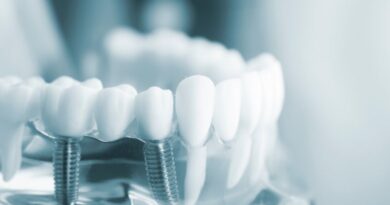Maintaining Bone Health: Calcium and Vitamin D Importance
Maintaining Bone Health: Calcium and Vitamin D Importance
Our bones play a fundamental role in supporting and protecting our bodies. Beyond serving as the structural framework, bones also contribute to mineral storage and blood cell production. Therefore, it is crucial to maintain bone health throughout our lives to ensure a strong and resilient skeletal system.
Understanding Bone Health
Importance of Bones in the Body
Bones provide the structural foundation for the body, enabling us to stand, walk, and move freely. Additionally, they protect vital organs, such as the brain and heart, from injury.
Factors Affecting Bone Health
Several factors influence bone health, including genetics, age, sex, and lifestyle choices. Poor nutrition, lack of physical activity, and certain medical conditions can also impact bone health.
The Role of Calcium in Bone Health
Calcium and Bone Formation
Calcium is a vital mineral that contributes to bone formation and density. During childhood and adolescence, when bones are growing rapidly, adequate calcium intake is crucial for optimal bone development.
Calcium Requirements at Different Life Stages
The daily calcium requirements vary based on age and gender. For instance, children and teenagers need more calcium during growth spurts, while adults require sufficient calcium to maintain bone strength.
The Significance of Vitamin D for Bones
How Vitamin D Helps Absorb Calcium
Vitamin D is essential for the absorption of calcium from the intestines. Without adequate vitamin D levels, the body struggles to utilize the calcium consumed through diet or supplements.
Sources of Vitamin D
The primary source of vitamin D is sunlight. When the skin is exposed to sunlight, it synthesizes vitamin D. Additionally, vitamin D can be obtained from certain foods and supplements.
The Link Between Calcium, Vitamin D, and Bone Health
Synergistic Relationship
Calcium and vitamin D have a synergistic relationship when it comes to bone health. Vitamin D facilitates calcium absorption, ensuring that the body can effectively utilize calcium to maintain bone density.
Impact on Bone Density and Strength
Adequate levels of calcium and vitamin D are essential for achieving peak bone mass in early adulthood. This peak bone mass serves as a reserve that can help counteract bone loss later in life.
Dietary and Lifestyle Tips for Maintaining Bone Health
Calcium-Rich Foods
Incorporating calcium-rich foods into the diet is vital for bone health. Dairy products, leafy greens, almonds, and fortified plant-based milk are excellent sources of calcium.
Sunlight Exposure for Vitamin D
Spending time outdoors and getting moderate sun exposure can help the body synthesize vitamin D. However, individuals living in areas with limited sunlight may need vitamin D supplements.
Regular Physical Activity
Engaging in weight-bearing exercises, such as walking, jogging, or dancing, helps strengthen bones and maintain bone density.
Avoiding Bone Health Deteriorating Habits
Certain habits, like smoking, excessive alcohol consumption, and a sedentary lifestyle, can negatively impact bone health and should be avoided.
Supplements for Bone Health
Who Might Benefit from Supplements
Some individuals, such as older adults and those with specific medical conditions, may benefit from calcium and vitamin D supplements to ensure adequate intake.
Choosing the Right Supplements
Consulting with a healthcare professional before starting any supplements is essential to determine the appropriate dosage and ensure they don’t interfere with other medications.
Bone Health and Aging
Bone Health Challenges as You Age
As we age, bone density tends to decrease, leading to conditions like osteoporosis. Therefore, prioritizing bone health becomes even more critical with age.
Strategies for Promoting Bone Health in Older Adults
Older adults can take measures to maintain bone health, such as a well-balanced diet, regular exercise, and fall prevention strategies.
Common Myths and Misconceptions about Bone Health
Separating Fact from Fiction
There are various myths surrounding bone health, and it’s essential to debunk them to make informed decisions about maintaining healthy bones.
Conclusion
Taking care of our bones is a lifelong endeavor. Calcium and vitamin D play pivotal roles in maintaining bone health and preventing conditions like osteoporosis. By following a balanced diet, staying physically active, and ensuring adequate vitamin D exposure, we can significantly enhance our bone health and overall well-being.
FAQs (Frequently Asked Questions)
FAQ 1: How much calcium do I need daily?
The recommended daily calcium intake varies by age and gender, but for most adults, it ranges from 1000 to 1300 mg.
FAQ 2: Can I get enough Vitamin D from sunlight alone?
While sunlight is a primary source of vitamin D, factors like geographical location, skin tone, and sunscreen use can affect vitamin D synthesis. Some individuals may need supplements to meet their vitamin D needs.
FAQ 3: Are there any side effects of calcium supplements?
When taken as recommended, calcium supplements are generally safe. However, excessive calcium intake from supplements may lead to side effects such as constipation or kidney stones.
FAQ 4: Can bone health be improved through exercise?
Yes, engaging in weight-bearing and muscle-strengthening exercises can improve bone density and overall bone health.
FAQ 5: What are some bone-healthy recipes?
Some bone-healthy recipes include calcium-rich smoothies with dairy or fortified plant-based milk, grilled salmon with leafy greens, and yogurt parfaits with almonds and fruits.





Pingback: The Healing Power of Aromatherapy: Essential Oils for Wellness | UTHSI 2023